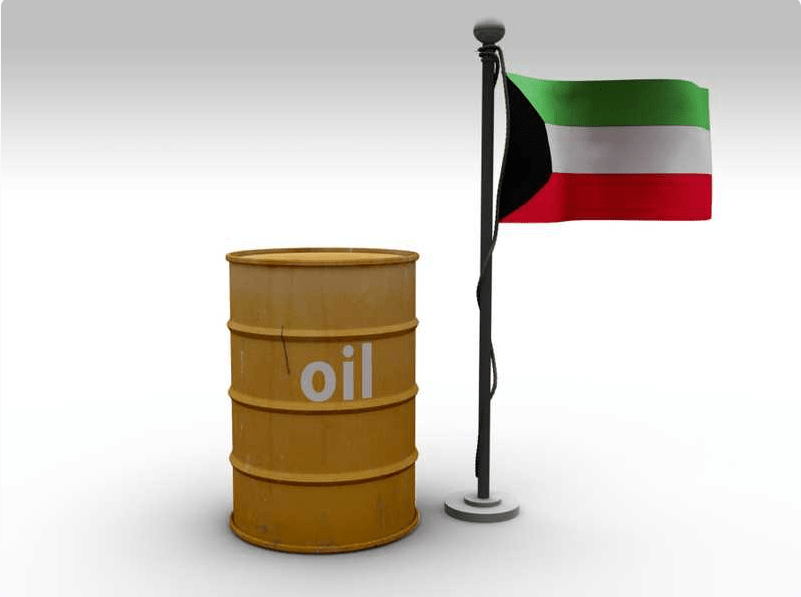Standard & Poor’s reported that Kuwait is nearing its maximum oil production, which may limit its ability to produce more crude to meet rising global demand, as the Organization of the Petroleum Exporting Countries faces pressure from major customers to ease prices.
The agency said in a report “Kuwait has a margin to increase production by only about 30 thousand barrels per day from the current levels, and the low increase in the level of production is due to the inappropriate business climate in the country, and government instability, which limits Kuwait’s ability to achieve further growth of its oil production.” Note that Kuwait pumped 2.72 million barrels per day in June, according to the latest agency survey, reports a local Arabic daily.
The report added: “The Kuwait Oil Company announced in 2018 very ambitious plans to increase production capacity to 4.75 million barrels per day by 2040. It revised its goal to 3.5 million barrels per day by 2025, and 4 million barrels per day by 2040. Oil analysts say that Kuwait’s reaching these levels It may be difficult.”
Standard & Poor’s stated that Kuwait’s plans to increase its oil production come from the Burgan field, the second largest oil field in the world, which produces 95% of its capacity, and the development of the divided zone fields continues. It quoted oil analysts as saying, “No major new oil increases will appear until the end of the current decade, except that it requires huge funding and international expertise, which still represents a major challenge for foreign investments.”
The agency expected that Kuwait will witness in the medium term an increase in crude oil production through the development of the second phase of the Lower Fars project, which is scheduled to start work by next year, adding about 200,000 barrels per day by the end of the current decade. The divided zone fields will also add to Kuwait’s oil production. It is also expected that Kuwait will resort to developing and selling condensate from projects such as Sabriya.
Standard & Poor’s touched on the loan facility from Japan worth $1 billion signed last March, which will allow Kuwait to increase oil production and maintain a safe market share of crude for future production, noting that the government’s resignation and the dissolution of Parliament for the second time this year led to delay these plans.
It quoted a Japanese banking source as saying that work on the Japanese loan facilities for the Kuwait Oil Company is going on as usual, and explained that Japan was looking to diversify its imports of crude oil, and not depend on Russian crude, after the war with Ukraine in March, and Kuwait formed the third largest oil exporter to Japan in 2021, noting that Japan had a major reason to invest in the oil exploration and production sectors in Kuwait to compensate for its loss for the Khafji field concession in the Neutral Zone after its expiry in 2003.
It quoted a Japanese source as saying: “The loan facilities to Kuwait to increase its oil production may help Tokyo re-enter the oil exploration and production sectors, revive Kuwaiti oil production and help increase the country’s crude oil exports.”
The “OPEC +” alliance agreed to increase oil production by 100,000 barrels per day, starting from September, which gives the market additional supplies, but at a much slower pace than in recent months.
The coalition ministers supported the proposal for the slight increase in an online meeting, and “OPEC +” pledged in July and August to add more than 600,000 barrels per day to the market.
This increase may not be a relief to consumers who are already suffering from inflationary pressures due to higher oil prices. At the time, Brent crude compensated for its losses recorded in early trading, rising by 1.3% to reach $101.80 a barrel.
Deputy Prime Minister, Minister of Oil and Minister of State for Cabinet Affairs Dr. Muhammad Al-Fares stressed the need for cooperation and coordination between all producers to face any challenges or impacts on the supply of oil markets.
Al-Fares said that the “OPEC +” alliance will enter a new phase of comprehensive cooperation to manage the oil markets effectively and play a greater role during the coming period.
He affirmed Kuwait’s full commitment to the agreed production quotas, praising the decision of “OPEC +” to increase supplies during the month of September by 100,000 barrels per day, “to be a positive indicator to support the market, and Kuwait’s share for the month of September will be 2.818 million barrels per day.”

